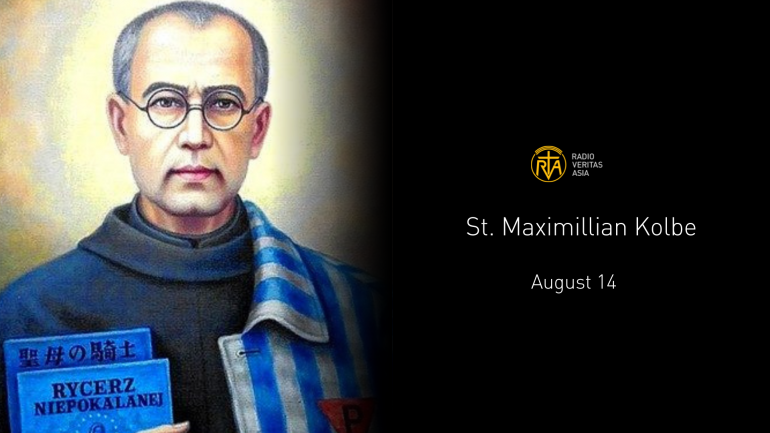The Extraordinary Life and Sacrifice of St. Maximilian Kolbe

After the Gestapo closed down his Niepokalanów monastery in Poland, Fr. Maximilian Kolbe was arrested and imprisoned in Warsaw in February 1941.
By May of that year, he was transferred to Auschwitz as prisoner 16670.
Maximilian Kolbe was born in 1894 in Zduńska Wola, central Poland, the same year Coca-Cola was first sold in bottles.
His father, a weaver, was an ethnic German, and his mother, a midwife, was Polish. At the time, Poland was part of the Russian Empire.
Kolbe, who had four brothers (two of whom died from tuberculosis), joined the Conventual Franciscan Order in 1907 along with his older brother, Francis.
Upon becoming a novice, he took the name Maximilian. He earned doctorate in Philosophy from the Pontifical Gregorian University and in Theology from the Pontifical University of St. Bonaventure, both in Rome.
His father, Julius, joined the Polish resistance movement during World War I and was eventually captured and executed by the Russians.
In 1917, Kolbe formed the Army of the Immaculate One, aimed at converting sinners and enemies of the Catholic Church, particularly the Freemasons.
After completing his studies in Rome, he returned to a newly independent Poland in 1919, where he began teaching at a seminary in Krakow.
However, his battle with tuberculosis forced him to cease teaching.
Kolbe founded the publication "Knight of the Immaculata" in 1922 and established a new monastery in Poland, which also served as a religious publishing house.
Prior to his 1941 arrest, Kolbe was detained in September 1939 under general suspicion by the Nazis but was released after three months.
During the 1930s, Kolbe traveled to China and Japan, where he founded a monastery near Nagasaki in 1931.
This monastery remarkably survived the atomic bomb dropped on Nagasaki in 1945. Kolbe also established a monastery in India before returning to Poland in 1933 and then again in 1936 after another brief return to Japan.
In 1938, Kolbe founded an amateur radio station (SP3RN) in Poland. During World War II, he set up a temporary hospital in Poland and was again arrested by the Germans in 1939, only to be released after three months.
Kolbe refused to sign the German People's List, which would have granted him the same rights as Germans.
Kolbe and the friars at his monastery offered shelter to refugees, including Jews, and used their facilities to publish anti-Nazi articles.
In 1941, the Gestapo shut down the monastery, arresting Kolbe and four other friars.
In Auschwitz, an inmate's escape prompted the Germans to starve ten prisoners to death as a deterrent. One of the chosen was Franciszek Gajowniczek, who cried out about his wife and children.
Kolbe volunteered to take his place, sparing Gajowniczek's life. After two weeks without food or water, six prisoners died, and the Germans hastened the deaths of the remaining four by lethal injection.
Kolbe, calm in the face of death, likely drew strength from a vision he had of Mary at age 12, where she offered him two crowns: one for purity and one for martyrdom. He accepted both.
Kolbe died at age 47 on August 14, 1941. He was beatified by Pope Paul VI in 1971 and canonized by Pope John Paul II in 1982.
Radio Veritas Asia (RVA), a media platform of the Catholic Church, aims to share Christ. RVA started in 1969 as a continental Catholic radio station to serve Asian countries in their respective local language, thus earning the tag “the Voice of Asian Christianity.” Responding to the emerging context, RVA embraced media platforms to connect with the global Asian audience via its 21 language websites and various social media platforms.












